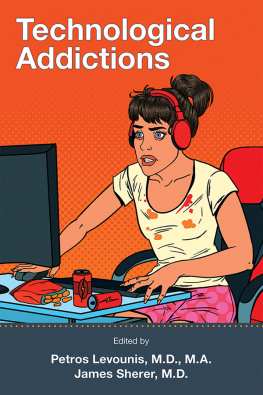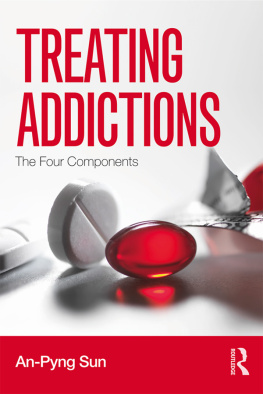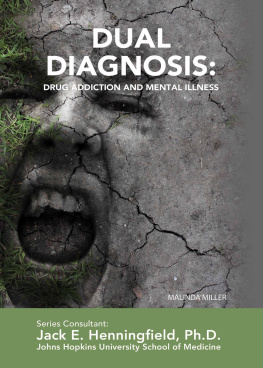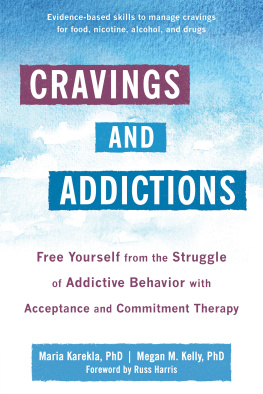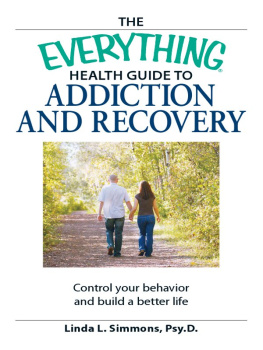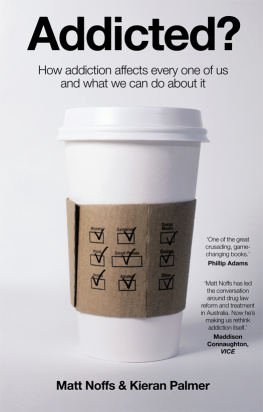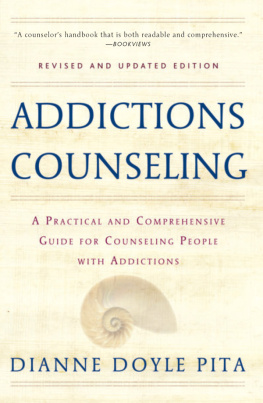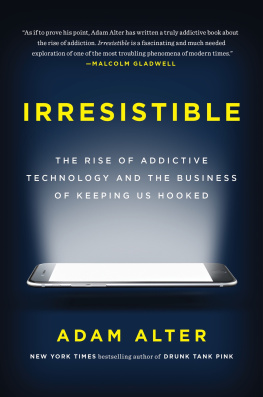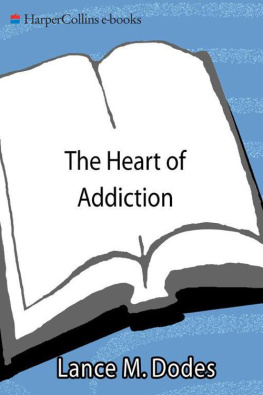Chair Petros Levounis MD Ma (editor) - Technological Addictions
Here you can read online Chair Petros Levounis MD Ma (editor) - Technological Addictions full text of the book (entire story) in english for free. Download pdf and epub, get meaning, cover and reviews about this ebook. year: 2021, publisher: American Psychiatric Publishing, genre: Home and family. Description of the work, (preface) as well as reviews are available. Best literature library LitArk.com created for fans of good reading and offers a wide selection of genres:
Romance novel
Science fiction
Adventure
Detective
Science
History
Home and family
Prose
Art
Politics
Computer
Non-fiction
Religion
Business
Children
Humor
Choose a favorite category and find really read worthwhile books. Enjoy immersion in the world of imagination, feel the emotions of the characters or learn something new for yourself, make an fascinating discovery.
- Book:Technological Addictions
- Author:
- Publisher:American Psychiatric Publishing
- Genre:
- Year:2021
- Rating:4 / 5
- Favourites:Add to favourites
- Your mark:
Technological Addictions: summary, description and annotation
We offer to read an annotation, description, summary or preface (depends on what the author of the book "Technological Addictions" wrote himself). If you haven't found the necessary information about the book — write in the comments, we will try to find it.
Technological Addictions is a wakeup call alerting the medical communityand society at largeto the addictive potential of technology and to technological addictions as legitimate psychiatric conditions worthy of medical assessment, diagnosis, and treatment. No other book tackles these addictions, individually and collectively, contextualizing them for both mental health professionals and the interested public. Petros Levounis, an authority on addiction whos been an early voice on the intersection of addiction and technology, and James Sherer are uniquely well-suited to the task, and they have recruited an impressive list of contributors who write thoughtfully, eloquently, and authoritatively on their respective topics. The 10 chapters address the different kinds of technological addiction, as well as how they manifest and impact particular populations. Core to this discussion is the fine line between addictive and nonpathological use. After all, technology makes modern life possible, so assessing whether patients have crossed that line is not an easy task.
Other noteworthy topics In 2019, gaming disorder was added to the ICD-11, a controversial move raised a difficult question: are video games addictive and harmful, or are they just another pastime? The book helps clinicians understand video games as a cultural phenomenon, analyzing both their social importance and with their addictive potential. Cybersex and online pornography can hijack our dopaminergic reward pathways like any other addictive substance, destroying relationships, bank accounts, and mental health. The book provides a brief history followed by a discussion of diagnostic criteria, screening tools, associations, and treatments. Although seemingly harmless, even social media can become addictive, as people create online personae that may confuse and undermine both their sense of self and their sense of connectedness to the world, leading to anxiety, depression, impulsivity, and ADHD. The book helps readers distinguish between healthy and pathological social media use and explores treatment options for the latter. Technology is an integral factor in what has become known as information overload, which is associated with decreased performance and job satisfaction, work-related stress, social isolation, impaired sleep, relationship issues, and other problems. The book examines the underlying psychology of internet addiction and problematic internet use, their comorbidities, psychopathological models, and treatments. Significantly older when first introduced to the internet, older adults may face unique challenges and vulnerabilities, and this evolving understanding of the role of technology in their lives, both in terms of positive changes and the risk for pathological patterns of use and other potential harms, is explored in-depth.
Although written primarily for psychiatrists and other mental health professionals, patients, parents, teachers, students, administrators, and anyone who is interested in how humans interact with technology will find Technological Addictions fascinating and thought provoking.
Chair Petros Levounis MD Ma (editor): author's other books
Who wrote Technological Addictions? Find out the surname, the name of the author of the book and a list of all author's works by series.

